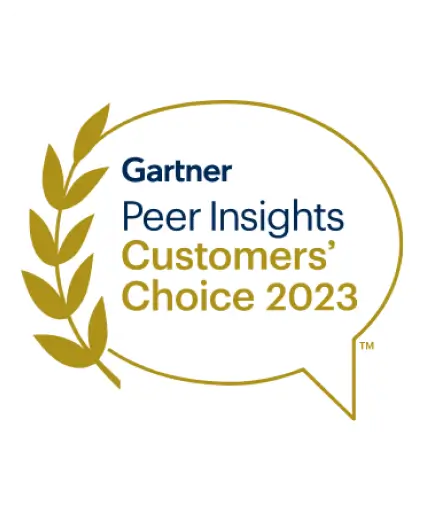Executive summary
Navigating through the vast choices of helpdesk ticketing systems can be challenging for businesses aiming to amplify their support operations. This comprehensive guide plunges into the essential aspects of helpdesk ticketing systems, spotlighting their indispensability and diverse benefits. The blog scrutinizes various helpdesk systems and ways to choose the best for your business. It also illuminates their potential to transform customer support dynamics.
Introduction
The advent of helpdesk ticketing systems in customer service has marked a significant transformation. Far from being just another technological advancement, these systems are reshaping the face of customer interactions and support management. Imagine a world where every customer query is tracked, managed, and resolved with precision, where support teams work in harmony, empowered by tools that enhance their productivity and enrich customer experience. It is the reality that helpdesk ticketing systems have brought to businesses, big and small.
As we navigate through 2024, the evolution of helpdesk ticketing systems is strikingly evident. These tools are now more than just about managing inquiries. They offer various features that cater to the diverse needs of different industries. From handling a deluge of customer inquiries with ease to providing detailed analytics for better decision-making, helpdesk ticketing systems have become an indispensable part of modern business infrastructure.
Related must-reads:
- Customer service strategy: A step-by-step guide
- 10 Reasons why is customer service important in 2024
- Should your business outsource customer service?
This blog will explore the best helpdesk ticketing systems and tools available in 2024, dissecting their capabilities, benefits, and how they fit into exceptional customer service.
What is a helpdesk ticketing system?
Envision the ever-so-bustling customer service operations: a place where every query, big or small, demands attention and precision. That is where a helpdesk ticketing system comes into play, not just as a tool but as a game-changer in customer support. It is transforming each customer interaction into a trackable, manageable ‘ticket.’ This system is the backbone of organized and efficient support, ensuring that every customer’s voice is heard and addressed.
The beauty of a helpdesk ticketing system lies in its ability to simplify the complex. It corrals diverse communication channels – think emails, phone calls, social media messages – into one cohesive platform. The result? A seamless, clutter-free dashboard where every customer interaction is a mere click away. Gone are the days of sifting through disjointed inboxes or losing track of customer interactions. This system is the solution to the chaos, bringing a sense of order and clarity to the frenetic world of customer support.
But it’s not just about keeping things tidy. A helpdesk ticketing system is about empowerment and strategy. It enables your team to assign, categorize, and prioritize tickets efficiently, ensuring the right agent is on the job. It’s about ensuring responses are timely, consistent, and in line with service level agreements. More than just a reactive tool, it’s a proactive ally in your quest for customer service excellence. It improves collaboration among teams, scales personalized interactions, and provides invaluable insights into customer feedback and performance metrics.
In short, a helpdesk ticketing system doesn’t just manage tickets; it elevates the entire customer service experience. It’s the bridge between chaotic customer queries and streamlined, practical solutions. Today, it’s an indispensable part of delivering top-notch customer support.
What are the benefits of a helpdesk ticketing system?
The introduction of a helpdesk ticketing system marks a pivotal shift in how customer support is handled. Besides managing customer requests, it’s about enhancing the overall customer experience through smarter, more efficient, and collaborative approaches. Let us look at some of the significant benefits of helpdesk ticketing systems.
1. Boost agent productivity and efficiency
The first and perhaps the most tangible benefit is the significant boost in agent productivity and efficiency. A helpdesk ticketing system streamlines the ticket management process, automating mundane tasks and liberating agents to focus on complex customer queries. This efficiency is about empowering agents with the right tools and information at their fingertips, enabling them to provide quicker and more accurate responses. The ripple effect? A more productive team and satisfied customers.
Related read: AI Agents: Types, Benefits and Examples
2. Lower costs with self-service and AI
Another striking advantage is the cost-effectiveness brought about by self-service options and AI integration. By incorporating a robust knowledge base and AI-driven chatbots, helpdesk ticketing systems can deflect routine inquiries, significantly reducing the load on your support staff. This streamlines operations and also translates to substantial cost savings without compromising the quality of customer service.
Related read: How UnionBank achieves 3X increase in self-serve users with AI automation
3. Increase customer loyalty and retention
In today’s customer-centric market, loyalty is gold, and helpdesk ticketing systems are adept at nurturing it. These systems offer a more personalized and responsive service experience, addressing customer issues promptly and effectively. The personalized touch and quick resolution of issues foster a sense of trust and reliability among customers, which, in turn, enhances loyalty and increases the likelihood of repeat business.
Related read: Customer retention: 15 strategies to improve CR
4. Create actionable data insights
Helpdesk ticketing systems are a goldmine of data, offering actionable insights that can drive strategic decisions. By tracking and analyzing customer interactions and support resolutions, businesses can identify trends, anticipate needs, and refine their services. This data-driven approach enables continuous improvement in customer support strategies, ensuring that businesses stay aligned with customer expectations and industry standards.
5. Enhance collaboration between departments
Lastly, these systems break down silos and foster collaboration across departments. With a unified ticketing interface, different teams within a business can access, share, and update information seamlessly. This collaboration ensures that customer issues are addressed comprehensively, drawing on expertise from across the organization. By enabling different departments to work together effectively, a helpdesk ticketing system ensures that every customer interaction is informed, coherent, and solution-focused.
Best practices for support ticket systems
Navigating the world of customer support in 2024 demands more than just reactive strategies. It requires a proactive, structured approach to handle customer queries efficiently. Implementing best practices for support ticket systems can transform how businesses interact with and satisfy their customers. Let’s explore these practices that are shaping the future of customer support.
1. Regular training
Continuous learning is vital. With the rapid evolution of support ticket systems, ensuring your team is proficient with the latest updates and features is crucial. Regular training sessions not only keep your staff updated but also encourage the adoption of new functionalities that can streamline support processes.
2. Define clear SLAs
Setting and adhering to clear Service Level Agreements (SLAs) is fundamental. These agreements provide a framework for response and resolution times, ensuring consistency and reliability in customer support. Clear SLAs help set customer expectations and drive team accountability, leading to enhanced trust and satisfaction.
3. Leverage automation
Automation is a game-changer. It can handle repetitive tasks, streamline workflows, and ensure that the right tickets reach the right agents. By automating routine processes, your team can focus more on complex issues that require a human touch. It improves efficiency and elevates the quality of customer interactions.
4. Maintain an updated knowledge base
A well-maintained knowledge base is a treasure trove for both customers and support agents. It empowers customers to find answers quickly through self-service, reducing the overall volume of incoming tickets. Regularly updating this resource ensures that the information remains relevant, accurate, and helpful.
5. Analyze and optimize
Harness the power of data analytics to refine your support ticket system continually. Regular analysis can reveal patterns, highlight areas needing improvement, and provide insights to enhance the overall customer experience. By understanding these metrics, you can make informed decisions to optimize your system for better performance.
6. Encourage customer feedback
Feedback is a valuable asset. Encourage your customers to share their experiences and suggestions. This feedback can be a crucial source of information for refining your support strategies, enhancing your services, and tailoring your approach to meet customer needs more effectively.
7. Ensure mobile accessibility
In a world where mobile devices are ubiquitous, ensuring that your ticketing system is accessible on various devices, especially mobiles, is essential. It enhances the user experience for customers and also allows your support team to manage tickets on the go, increasing flexibility and responsiveness.
8. Integrate with other tools
Integration is vital for a seamless experience. Ensure that your ticketing system can effortlessly connect with other tools in your technology stack, such as CRMs, analytics platforms, and communication tools. This integration helps in providing a unified view of customer interactions and streamlines various processes.
9. Promote self-service
Empower your customers with self-service options. By promoting your knowledge base and self-service portals, you can reduce the dependence on support agents for common queries. It frees up your team to focus on more complex issues and also provides customers with quick and convenient solutions.
10. Keep your team in the loop
Effective communication within your team is crucial. Ensure that all members are aligned and updated on any changes, updates, or new strategies in the ticketing system. It leads to a collaborative environment and ensures that everyone is working towards the same goal – providing exceptional customer service.
How to implement helpdesk ticketing software?
Implementing a helpdesk ticketing system is a strategic process that requires careful planning, execution, and ongoing optimization. By following some fundamental steps, businesses can ensure a smooth transition to a more structured and efficient customer support model, ultimately leading to higher customer satisfaction and improved operational performance.
1. Streamline support operations: Define your ideal ticketing system
Begin by defining the specific needs and goals of your ticketing system. It’s crucial to understand the unique requirements of your business to select a system that enhances efficiency and customer satisfaction. Determine the features you need, such as automation, multi-channel support, and analytics capabilities. This foundational step sets the stage for a ticketing system that aligns with your operational objectives and customer service standards.
2. Establish clear commitments: Craft a service level agreement (SLA)
Creating a Service Level Agreement (SLA) is vital for ensuring quality and transparency in your support services. An SLA outlines the expectations and standards for response times, resolution processes, and overall service quality. By establishing clear SLAs, you provide a benchmark for performance and set clear expectations for both your team and customers.
3. Empower your team: Allocate roles and responsibilities
A successful implementation hinges on a well-informed and capable team. Assign specific roles and responsibilities to your staff, ensuring everyone understands their part in the ticketing process. Clear delineation of duties facilitates a smooth workflow, enhances accountability, and ensures that every team member contributes effectively to the support operation.
Related read: Customer service representative: Skills & Strategies
4. Navigate tickets seamlessly: Design efficient ticket routing workflows
Efficient ticket routing is critical for swift resolution and an improved customer experience. Develop workflows that intelligently direct tickets to the appropriate agents or departments based on factors like expertise, availability, or issue complexity. Well-designed routing workflows minimize response times and ensure that customers receive expert assistance promptly.
5. Validate your efforts: Rigorous testing for your ticketing system
Before fully implementing your ticketing system, conduct thorough testing to identify and address any potential issues. This step is crucial for ensuring the system functions as intended and provides a seamless experience for both customers and agents. Test different scenarios and use cases to validate the system’s reliability and effectiveness.
6. Measure and improve: Continuous performance reporting and optimization
Finally, establish a framework for ongoing monitoring and improvement. Regularly review performance metrics and customer feedback to gauge the effectiveness of your ticketing system. Use these insights to make continual enhancements, ensuring your system remains effective, responsive, and aligned with customer needs and industry best practices.
How do different industries maximize ticketing systems?
The help desk ticketing system transcends its basic function of managing customer inquiries in every industry. It becomes a strategic tool that enhances customer service and also integrates with industry-specific operations, making it an indispensable part of the business infrastructure. The adaptability of these systems to the unique demands of different sectors showcases their versatility and underscores their importance in today’s business landscape. Let us explore how different industries can maximize ticketing systems.
1. Retail & Ecommerce
Retail and e-commerce industries are fast-paced and dynamic. Here, customer queries span a wide range – from product inquiries to order tracking and returns. Help desk ticketing systems in this sector integrate seamlessly with e-commerce platforms. By centralizing customer communications and managing queries directly, these systems enable a unified customer experience. They also address common pain points like fragmented interactions and high query volumes, ensuring prompt and accurate responses essential for customer retention and satisfaction in retail.
2. Travel & Hospitality
High-volume inquiries and time-sensitive requests characterize the travel and hospitality industry. Implementing a help desk ticketing system here allows businesses to offer round-the-clock support through self-service portals and preferred communication channels like WhatsApp and Facebook Messenger. It enhances guest experiences through instant support and also efficiently manages booking changes, special requests, and other critical inquiries that are common in this sector.
3. Education
Educational institutions, from schools to universities, deal with a range of queries related to admissions, administrative tasks, and student services. In this context, a ticketing system streamlines communication, offering dedicated portals for students and faculty. It simplifies the handling of diverse inquiries, from course enrollment to technical support. As a result, it makes the educational experience smoother for both students and faculty members.
4. Banking & Finance
In banking and finance, customer trust and security are paramount. Help desk ticketing systems in this industry focus on providing real-time omnichannel assistance while maintaining stringent security protocols. They facilitate secure conversations, automate due diligence processes, and personalize customer interactions, addressing the sector’s unique needs for confidentiality and efficiency in customer service.
5. Healthcare
The healthcare sector demands close attention to patient communication and confidentiality. A HIPAA-compliant ticketing system is essential for managing patient interactions, appointment reminders, billing, and insurance processes. These systems help reduce no-shows and streamline patient care coordination, all while maintaining the necessary privacy standards.
6. Manufacturing
For the manufacturing sector, managing customer inquiries, field service operations, and logistics is crucial. Ticketing systems in this industry integrate with tools for billing, invoicing, GPS tracking, and time management, creating a centralized platform for handling various operational aspects. This integration is particularly beneficial in addressing the logistical challenges and the need for real-time information and communication, which are crucial in manufacturing. By managing customer inquiries efficiently and keeping track of field agents and delivery processes, these systems help ensure that manufacturing operations run smoothly and responsively.
As we explore these diverse applications, it becomes clear that help desk ticketing systems are strategic assets tailored to each industry’s heartbeat. And it’s in this landscape of tailored solutions and industry-specific needs that Yellow.ai finds its niche. Stay tuned as we explore how Yellow.ai transforms customer support into a seamless, efficient, and customer-focused journey.
How Yellow.ai can help you automate your customer support team
Yellow.ai is a trailblazer in the customer support arena. It offers a suite of tools designed to revolutionize the way businesses interact with their customers. By harnessing the power of AI, Yellow.ai provides a robust platform that automates responses and also personalizes the customer experience, making each interaction more meaningful and effective.
Dynamic AI and machine learning: Yellow.ai leverages sophisticated AI and machine learning algorithms that learn and evolve from every interaction. This continuous learning process allows the system to provide increasingly accurate and personalized responses, enhancing customer satisfaction over time.
Natural Language Processing (NLP): At the core of Yellow.ai’s technology is its advanced NLP engine, which understands and processes customer queries in a human-like manner. This technology ensures that the platform can handle complex and varied customer requests with high accuracy, providing responses that are contextually relevant and engaging.
Related read: What is Natural Language Processing (NLP) – A complete guide
Omnichannel support: Yellow.ai’s platform excels in providing consistent support across multiple channels, including web, mobile, social media, and messaging platforms. This omnichannel capability ensures that customers receive a uniform experience, regardless of how they choose to interact with your business.
Data-driven insights and analytics: The platform offers robust analytics tools that provide valuable insights into customer behavior and preferences. These data-driven insights enable businesses to make informed decisions, tailor their services, and continuously improve the customer experience.
Seamless integration and scalability: Yellow.ai chatbots integrate smoothly with existing business systems and scale as per the growing needs of your business. Whether it’s CRM integration or adapting to increased customer interactions, Yellow.ai’s flexible architecture ensures that your customer support scales efficiently.
Real-world success stories: Yellow.ai in action

Hyundai boosts revenue and improves customer service with AI automation
Explore how Yellow.ai’s automation led to ~1000 car sales, a 10% retail conversion rate, and over 1.4 million user impressions

Pelago reimagines customer experience with generative AI powered conversational AI agents
Within a mere six weeks of going live, Pelago not only onboarded over 5,000 users but also achieved a striking 50% deflection rate!
Partner with Yellow.ai for unmatched customer support
Discover how Yellow.ai can elevate your customer support operations. Our AI-driven solutions can cater to diverse industry needs, offering efficiency, scalability, and an enhanced customer experience.
Ready to transform your customer support with AI-driven solutions? Book a demo with Yellow.ai today and see how our technology can make a difference in your business.
Join the ranks of successful companies like Indigo, Pelago and Waste Connections. Experience the revolutionary impact of Yellow.ai in your customer support journey.
The final thoughts
The art of customer support is ever-evolving. The cutting-edge world of helpdesk ticketing systems showcases that these tools represent a leap into a future where technology, empathy, and efficiency blend seamlessly to redefine the customer experience. It is also evident that each industry finds unique value in these systems, crafting customer interactions that are meaningful connections. Platforms like Yellow.ai are at the forefront of this revolution, meeting the current demands and innovating for the unknowns of tomorrow. Let this be our takeaway: in the vast, intricate customer support world, the technology that we adopt today will define the strength of our customer relationships tomorrow.























